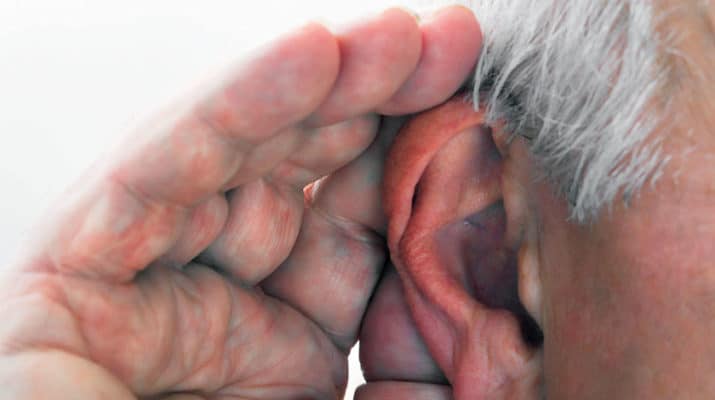Hearing loss common problem for older adults
By Barbara Pierce
Hearing may be the most underappreciated of the five senses.
If you can’t see well, of course you go ahead and get glasses. If you can’t hear well, even in this day and age, people are still reluctant to admit they need to see a hearing specialist.
Do you have trouble understanding conversations in noisy places? Do you often have to ask others to repeat themselves because you feel like they’re mumbling or talking too softly? Is it especially hard to hear what your young grandchildren are saying?
Does your family complain that you have the TV too loud? Do you have occasional or constant ringing in your ears? Make sure you see Almond Hearing homepage to find a solution.
If you have any of these signs, you may be one of three persons over age 60 that has some hearing loss. Of persons over the age of 75, nearly half have hearing loss.
Many factors contribute to hearing loss as you age. Age-related hearing loss is the most common cause, stemming from changes in the hearing system. Also, medical conditions, such as diabetes and high blood pressure, can contribute to hearing loss. Some medications, such as chemotherapy, can be toxic to the sensory cells in ears.
If your hearing is impaired, your brain has to work harder to make out the words and sounds. Persons with hearing loss experience a 40% faster decline in cognitive ability. The hearing center of the brain shrinks when you have age-related hearing loss. Other areas of the brain must take over to help compensate. It’s a risk factor for dementia.
And it’s hard on relationships — it affects your relationships with family and friends. It may cause others to resent you. It gives rise to loneliness as you may withdraw from others.
“Most people who have hearing loss don’t realize it,” said Clayton Andrews, board-certified hearing instrument specialist at Upstate Hearing, Inc., Oswego.
“I’ve been doing this for 30 years; I’ve found people may have severe hearing loss and they don’t realize it. They’re shocked to hear that they do. Their loved ones have noticed,” he said.
“Hearing loss is sneaky. Like a cancer, it sneaks up on you,” he explained. The loss usually occurs gradually.
“It takes most people seven to 10 years to come to an acceptance that they have hearing loss,” he added.
In state of denial
Even when we become aware that we have hearing loss, many of us still don’t want to deal with it. The reasons are endless. We worry how hearing aids will look; we don’t want to admit we’re older, and we are concerned about the cost.
Hearing aids have come a long way, especially in the last five to 10 years. Technology has advanced a great deal, making them much easier to wear.
“Hearing aids are all but invisible now,” said Andrews. “In the past, they were big, ugly, and very apparent. Now, most are invisible. In fact, with Bluetooth technology, hearing aids are fashionable.”
“Yes, hearing aids are overpriced,” he agreed. “But this is changing quickly. Prices have gone down significantly. And more and more insurances are giving hearing aids as a benefit.” However, Medicare still does not cover hearing aids.
Shop around, he advised. Get a second, even a third, opinion. Stick to a professional.
Costco is the top retailer for hearing aids, Andrews suggested. At Costco, a pair of hearing aids fitted by a licensed professional costs about $1,500 for members.
“At Upstate Hearing, our most reasonable price is $2,000 a pair, professionally fit, with a three-year warranty — this is very affordable for good hearing aids. If the price is over $4,000, definitely you should shop around and get another opinion. We’re opposed to overpricing at Upstate.”
Upstate encourages you to test the hearing aids they recommend, and wear them for free for a week or two to see how they work for you.
Under New York state law that applies to all sales of hearing aids, if you return the hearing aid within 45 days of purchase, you are entitled to a full refund of the total purchase price, less 10%. “If you don’t like the way it works, you get your money back,” said Andrews.
Also, Andrews recommends the use of a third party referral system, like Truhearing.com or Hearing.com. “They will refer you to a professional and you’ll get the best price. If you go through a third party, the cost will be significantly less than if you walked into a retail store,” he said.
Don’t ignore your loss of hearing. Taking care of it will change your life and change your relationships with the people you love, Andrews added.
For more information on Upstate Hearing, Inc. see its website at https://upstatehearinginc.com/ or call 315-312-0097.

